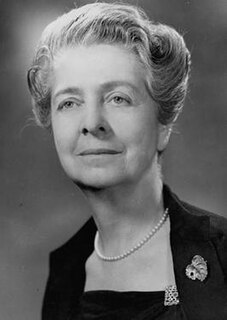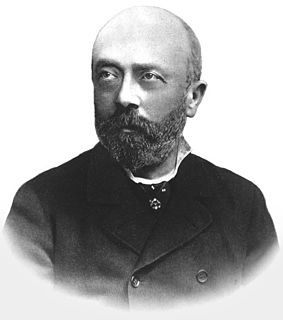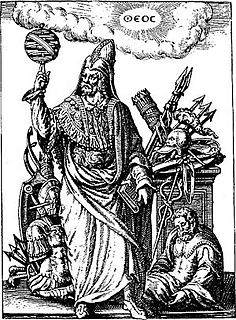
Georg Wilhelm Friedrich Hegel was a German philosopher. He is considered one of the most important figures in German idealism and one of the founding figures of Modern philosophy, with his influence extending from epistemology, logic, and metaphysics to aesthetics, philosophy of history, philosophy of religion, and the history of philosophy.
The occult, in the broadest sense, is a category of esoteric supernatural beliefs and practices which generally fall outside the scope of religion and science, encompassing phenomena involving otherworldly agency, such as magic. It can also refer to supernatural ideas like extra-sensory perception and parapsychology.
Microhistory is a genre of history that focuses on small units of research, such as an event, community, individual or a settlement. In its ambition, however, microhistory can be distinguished from a simple case study insofar as microhistory aspires to "[ask] large questions in small places", according to the definition given by Charles Joyner. It is closely associated with social and cultural history.

Rita Levi-Montalcini was an Italian Nobel laureate, honored for her work in neurobiology. She was awarded the 1986 Nobel Prize in Physiology or Medicine jointly with colleague Stanley Cohen for the discovery of nerve growth factor (NGF). From 2001 until her death, she also served in the Italian Senate as a Senator for Life. This honor was given due to her significant scientific contributions. On 22 April 2009, she became the first Nobel laureate to reach the age of 100, and the event was feted with a party at Rome's City Hall.

Carlo Ginzburg is an Italian historian and proponent of the field of microhistory. He is best known for Il formaggio e i vermi, which examined the beliefs of an Italian heretic, Menocchio, from Montereale Valcellina.

The Reason of State is a work of political philosophy by Italian Jesuit Giovanni Botero. The book first popularised the term Reason of State and became a political 'bestseller', going through several editions and translations into Spanish, Latin and French in the late sixteenth and the seventeenth century. Botero's Reason of State was also translated into German as Johannis Boteri Grundlicher Bericht Anordnung guter Polizeien und Regiments (1596). Despite this success on the continent, Botero's Della Ragion di Stato was never published in England. However a little-known contemporary English manuscript translation exists in the British Library. Botero's treatise has been translated into English by P.J. and D.P. Waley with an introduction by D.P. Waley, and, more recently, by Robert Bireley.

The Master Mind of Mars is a science fantasy novel by American writer Edgar Rice Burroughs, the sixth of his Barsoom series. Burroughs' working titles for the novel were A Weird Adventure on Mars and Vad Varo of Barsoom. It was first published in the magazine Amazing Stories Annual vol. 1, on July 15, 1927. The first book edition was published by A. C. McClurg in March, 1928.
Macrohistory seeks out large, long-term trends in world history in search of ultimate patterns by a comparison of proximate details. It favors a comparative or world-historical perspective to determine the roots of changes as well as the developmental paths of society or a historical process.
The history of mentalities or histoire des mentalités is the body of historical works aimed at describing and analyzing the ways in which people of a given time period thought about, interacted with, and classified the world around them, as opposed to the history of particular events, or economic trends. The history of mentalities has been used as a historical tool by several historians and scholars from various schools of history. Notably, the historians of the Annales School helped to develop the history of mentalities and construct a methodology from which to operate. In establishing this methodology, they sought to limit their analysis to a particular place and a particular time. This approach lends itself to the intensive study that characterizes microhistory, another field which adopted the history of mentalities as a tool of historical analysis.
In classical scholarship, the editio princeps of a work is the first printed edition of the work, that previously had existed only in manuscripts, which could be circulated only after being copied by hand.

Dan Sperber is a French social and cognitive scientist and philosopher. His most influential work has been in the fields of cognitive anthropology, linguistic pragmatics, psychology of reasoning, and philosophy of the social sciences. He has developed: an approach to cultural evolution known as the epidemiology of representations or cultural attraction theory as part of a naturalistic reconceptualization of the social; relevance theory; the argumentative theory of reasoning. Sperber formerly Directeur de Recherche at the Centre National de la Recherche Scientifique is Professor in the Departments of Cognitive Science and of Philosophy at the Central European University in Budapest.
Sir Edmund Ronald Leach FRAI FBA was a British social anthropologist and academic. He served as Provost of King's College, Cambridge from 1966 to 1979. He was also President of the Royal Anthropological Institute from 1971 to 1975.

Felix Otto Dessoff was a German conductor and composer.
Michael Eugene Harkin is one of the leading anthropologists in the United States specializing in the ethnohistory of indigenous people of the western U.S. and Canada. He is currently professor and former chair of anthropology at the University of Wyoming, having previously taught at Emory University and Montana State University. In 2011 he was Fulbright Distinguished Chair in Cultural Studies at the Karl-Franzens University in Graz, Austria, and in 2007 he was a visiting professor at Shanghai University.

Hermetic Qabalah is a Western esoteric tradition involving mysticism and the occult. It is the underlying philosophy and framework for magical societies such as the Golden Dawn, Thelemic orders, mystical-religious societies such as the Builders of the Adytum and the Fellowship of the Rosy Cross, and is a precursor to the Neopagan, Wiccan and New Age movements. The Hermetic Qabalah is the basis for Qliphothic Qabala as studied by left hand path orders, such as the Typhonian Order.

Stephen Gill, FRSC is Distinguished Research Professor of Political Science at York University, Toronto, Ontario, Canada. He is known for his work in International Relations and Global Political Economy and has published, among others, Power and Resistance in the New World Order, Power, Production and Social Reproduction, Gramsci, Historical Materialism and International Relations (1993), American Hegemony and the Trilateral Commission (1990) and The Global Political Economy: Perspectives, Problems and Policies.

Sigurður Gylfi Magnússon is an Icelandic historian specialising in microhistory. He was an independent scholar from the time he finished his doctoral dissertation 1993 until 2010. He established the Center for Microhistorical Research at the Reykjavík Academy) in 2003. He got a research position at the National Museum of Iceland named after Dr. Kristján Eldjárn, the former president of Iceland and an archaeologist, in 2010 and until 2013. After that he became a Professor of Cultural History at the Department of History at the University of Iceland.
Heide Wunder is a German historian.
Hans Medick is a German historian.
Robert Rollinger is an ancient historian and Assyriologist, known for his works on Herodotus, the Persian-Achaemenid Empire, ancient empires and cross-cultural encountering in the ancient world. He is a full professor at the University of Innsbruck and a full member of the Austrian Academy of Sciences (ÖAW).










